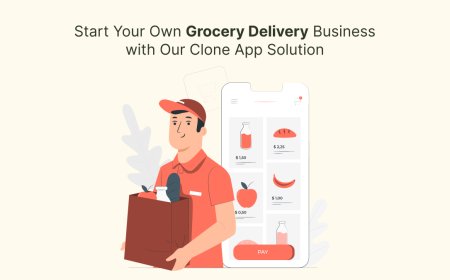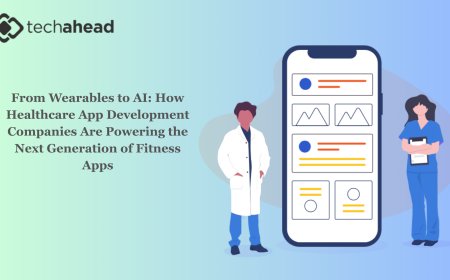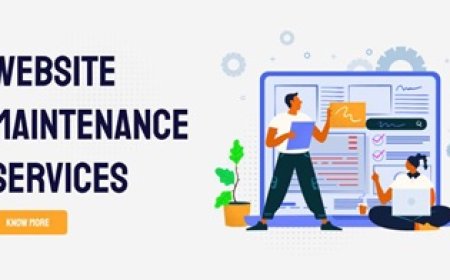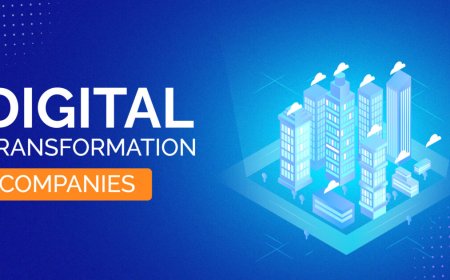CRM Development: Powering Customer Success Across Banking, Recruitment, and Beyond
Discover what determines the cost of CRM software development, including feature requirements, industry standards, and integration complexity. Whether you’re in banking, recruitment, or any other sector, understanding these factors helps you plan your CRM investment and maximize ROI.

In todays hyper-competitive business world, relationships drive growthand managing those relationships efficiently has never been more important. Thats where Customer Relationship Management (CRM) software comes in. CRM platforms have evolved from basic contact databases into sophisticated systems that centralize data, automate processes, and provide deep business intelligence across every sector, from banking and finance to recruitment, healthcare, retail, and manufacturing.
What is CRM Development?
CRM development is the process of designing, building, and customizing CRM software to fit the unique needs of a business. Unlike off-the-shelf solutions, custom CRM development lets organizations control every aspect of how they track, engage, and serve customers. This might involve integrating with core systems, building custom dashboards, automating complex workflows, or ensuring compliance with industry regulations.
A well-built CRM streamlines sales, marketing, customer support, and even internal operationsempowering teams to work smarter, close deals faster, and build loyalty.
The Value of CRM in Modern Business
Why is CRM so critical today? Because customer expectations have changed. People expect quick responses, personalized experiences, and seamless service across every channel. Businesses that deliver on these expectations win more repeat business and earn higher customer satisfaction scores.
CRM systems make this possible by:
-
Centralizing data: All customer information, interactions, and history are in one place.
-
Automating routine tasks: Follow-ups, reminders, and approvals are streamlined.
-
Providing analytics: Real-time dashboards highlight trends, opportunities, and bottlenecks.
-
Supporting omnichannel communication: Email, phone, chat, and social media can all be managed through a single interface.
CRM Development in Banking and Finance
The banking industry faces unique challenges: strict compliance regulations, sensitive customer data, and the need for 24/7, high-touch service. Here, CRM systems must do more than manage contactsthey must deliver secure onboarding, KYC (Know Your Customer) management, and targeted cross-selling.
Custom banking CRMs often integrate with core banking software, payment gateways, and regulatory reporting tools. Features include automated document management, audit trails, multi-level access controls, and real-time analytics to identify upsell opportunities or spot risk factors.
A banking CRM enables relationship managers to deliver personalized service, proactively reach out to high-value clients, and respond quickly to inquiriesall while keeping data safe and compliant with regulations like GDPR or the CCPA.
CRM for Recruitment Agencies
The recruitment sector is fast-paced, data-heavy, and relationship-driven. Recruiters juggle thousands of candidates and clients, manage job postings, and coordinate interviewsall under tight deadlines. Thats why a recruitment CRM is essential.
Modern recruitment CRMs centralize candidate and client data, automate outreach and follow-ups, and use AI-driven matching to quickly find the best talent for each job. Features like interview scheduling, email/SMS automation, feedback tracking, and analytics dashboards boost recruiter productivity and client satisfaction.
Integration with job boards, applicant tracking systems (ATS), payroll, and background check providers ensures a seamless hiring pipeline. For staffing agencies, a well-designed CRM means more placements, higher revenue, and happier clients.
CRM in Other Industries
Healthcare: Patient relationship management improves follow-up care, appointment scheduling, and communication between doctors and patientswhile ensuring data privacy and compliance (HIPAA, etc.).
Manufacturing: CRM helps manage distributor networks, automate quote generation, and integrate with ERP systems for streamlined sales and customer service.
Retail and E-Commerce: CRMs capture purchase history, personalize marketing campaigns, manage loyalty programs, and provide data-driven insights for inventory and promotion planning.
Nonprofits: Donor management, fundraising campaigns, volunteer tracking, and event coordination are all enhanced by a tailored CRM.
Custom vs. Off-the-Shelf CRM: Which Is Best?
Off-the-shelf CRM solutions like Salesforce, HubSpot, and Zoho offer fast setup and plenty of features out of the box. However, as businesses grow or develop unique processes, these systems can feel restrictive.
Custom CRM development gives you total control:
-
Build only the features you need
-
Integrate with your existing tech stack
-
Design workflows to match your business
-
Meet security and compliance requirements unique to your industry
This investment pays off in higher adoption, increased productivity, and a better fit for your long-term strategy.
What Makes a Successful CRM Project?
A successful CRM is not just about technologyits about understanding your business and users. Start with a clear discovery phase, mapping your goals, pain points, and current workflows. Involve stakeholders from every department to ensure buy-in.
A good CRM partner will:
-
Prioritize user experience and mobile access
-
Ensure data security and privacy
-
Offer analytics and reporting to drive decisions
-
Provide ongoing support and customization
The Future of CRM Development
CRM platforms are getting smarter, integrating artificial intelligence (AI), machine learning, and automation. Predictive analytics, chatbots, and voice assistants are becoming standard. Omnichannel CRM tools will connect every customer touchpoint, from website chat to social DMs and phone calls.
As businesses demand more tailored solutions, custom CRM development will remain a key differentiatorespecially for industries like banking and recruitment, where trust and relationships are everything.





























